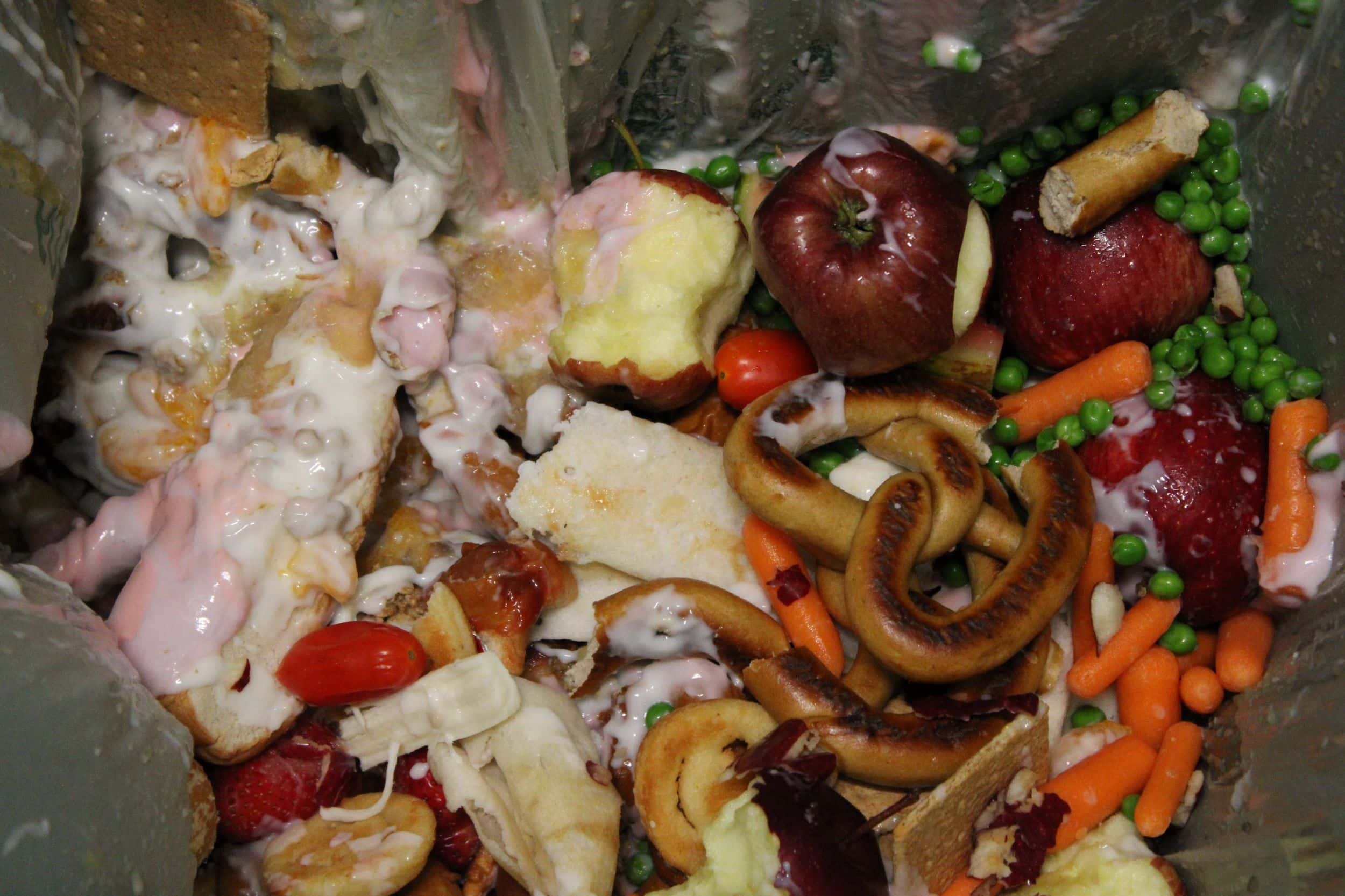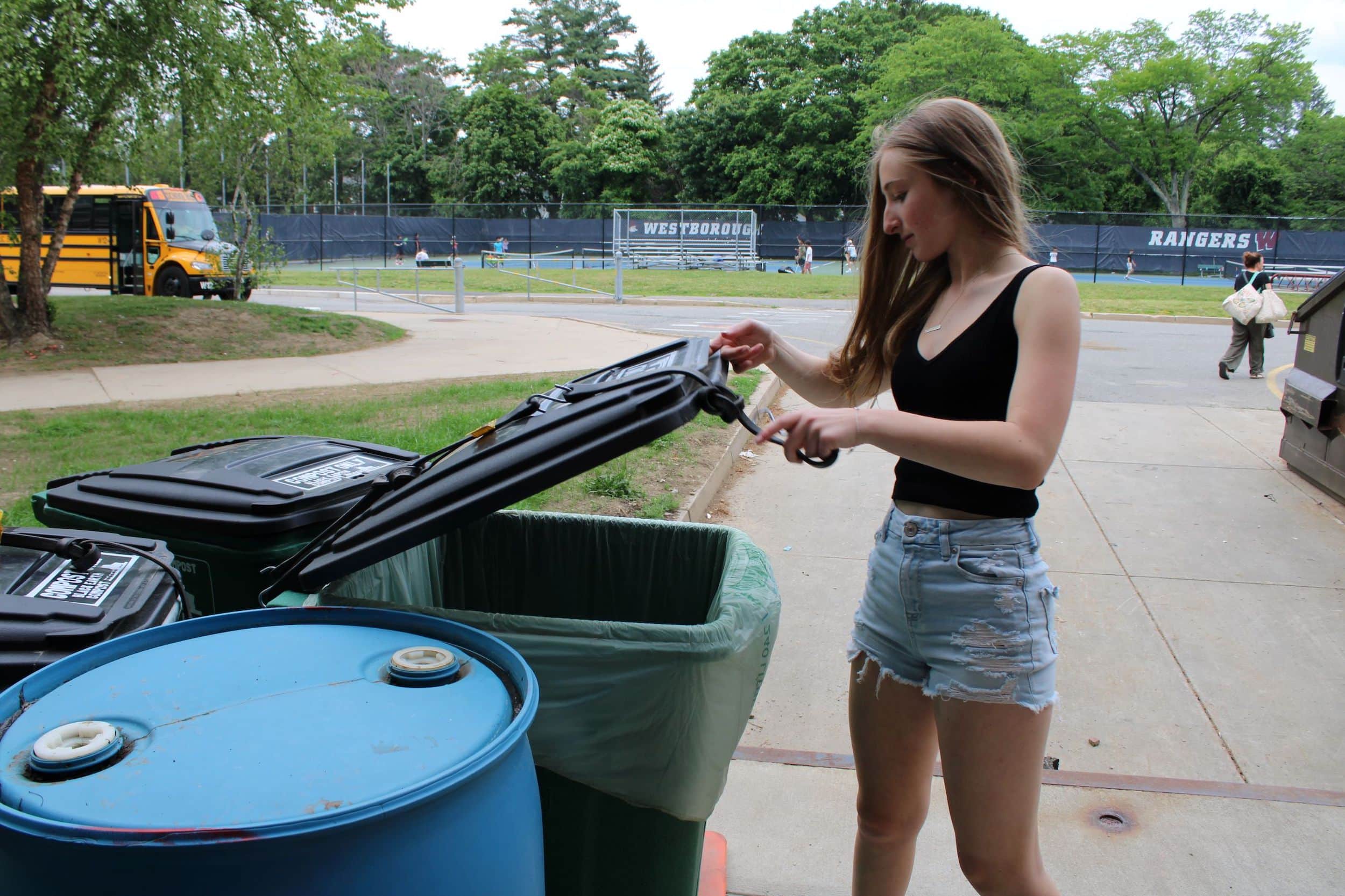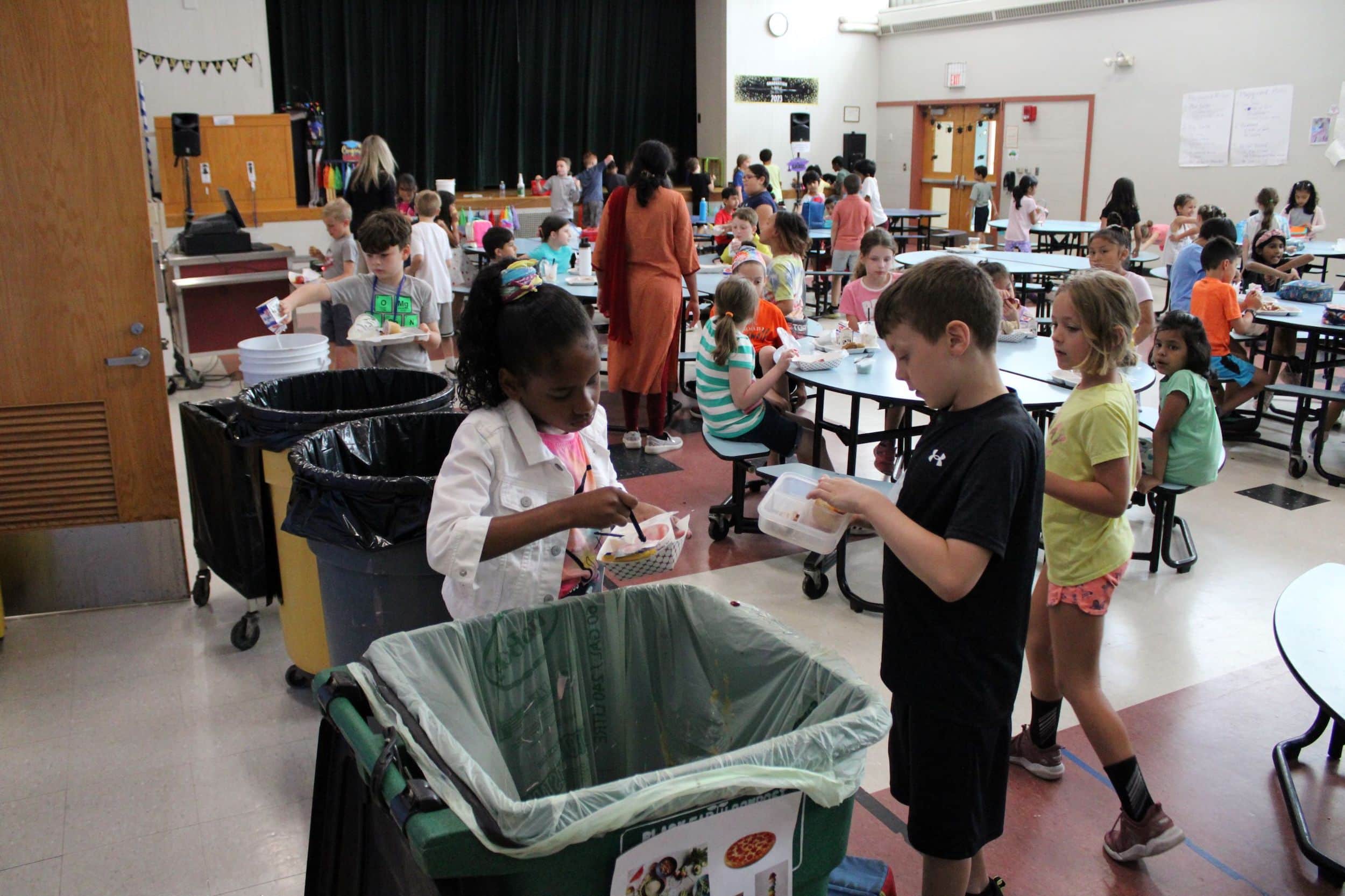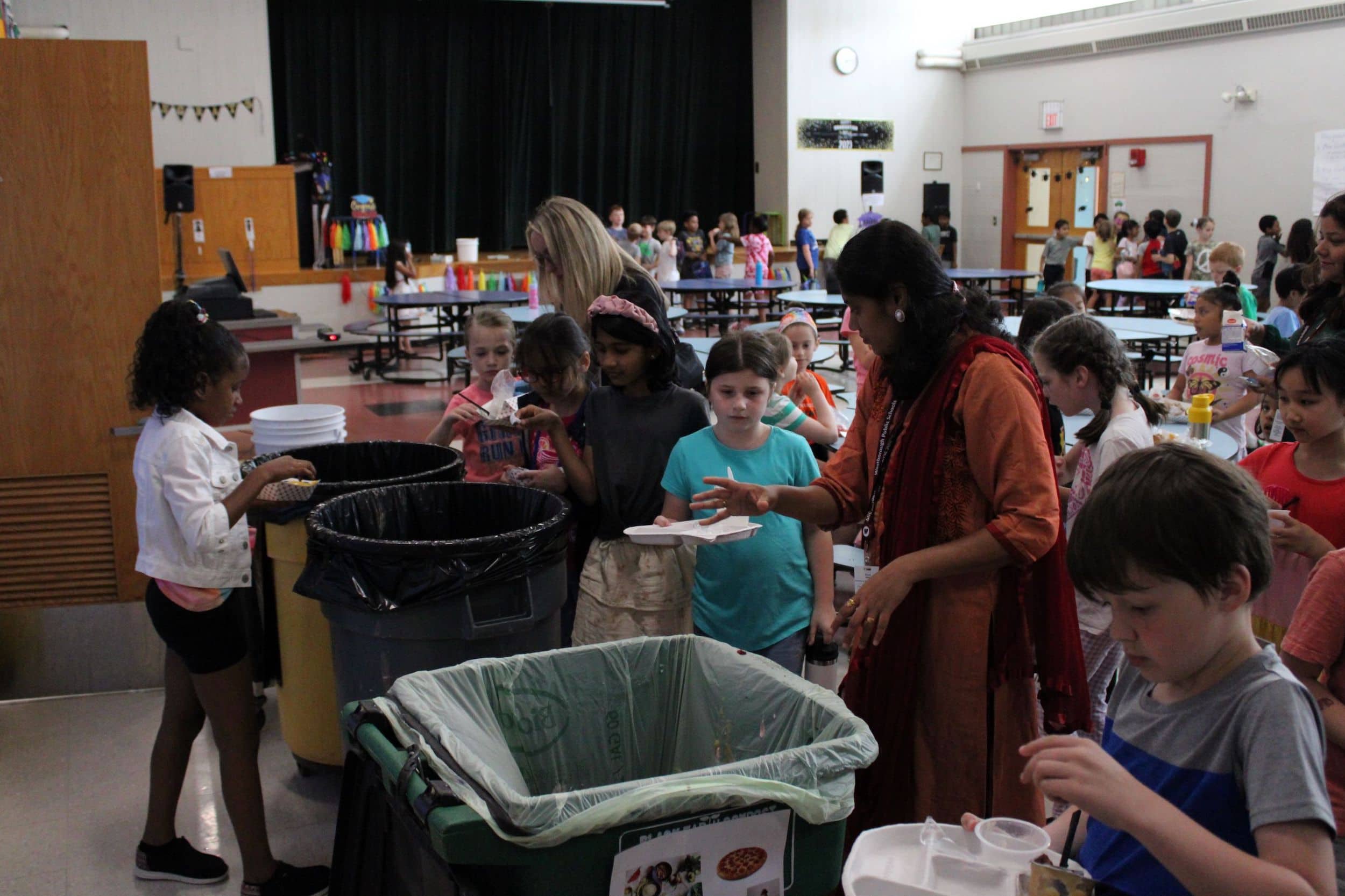
WESTBOROUGH – The proper disposal of food scraps may not be the most appetizing topic for a school’s curriculum.
But when it comes to learning how these scraps can help save the earth, those bits of breakfast and lunch become very important indeed.
Westborough Public Schools recently wrapped up its first year of a districtwide composting program. Each school within the district has bins in the cafeteria area where food scraps are deposited; the scraps are then picked up and turned into compost by Black Earth Composting.
According to a monthly report on composting kept by the schools, the elementary schools – Fales, Hastings, Armstrong and Mill Pond – have led the way, keeping tons of food scraps out of the landfills.
For May alone, Mill Pond has sent 4.14 tons of scraps to Black Earth, followed by Fales with 3.24 tons, Armstrong with 1.17 tons and Hastings with about three-fourths of a ton.
“As part of the Westborough community, and the larger world climate community, we all need to contribute in attainable ways to reducing emissions, reducing food waste and leveraging innovations to care for our earth,” said WPS Superintendent Amber Bock. “In our schools, we are able to model for students and faculty how to live in more sustainable ways. The composting project was developed from student interest and then extended across all of our schools.
“We see this as one step in further improvements to our efforts as a district to support the town goals of the master plan and Sustainable Westborough.”
Lunchtime at Armstrong
Armstrong began its composting program in the spring of 2022 with the help of Shawn Levine, an Armstrong alum doing this as part of his Eagle Scout project.
“He gave all of his spirit to get this program off the ground,” said Armstrong Principal John Mendes.
Armstrong students learn about composting with a PowerPoint presentation – what is compost, how food scraps turn into compost, what items can and cannot be thrown into the compost bin.
During their lunchtime – or rather, at the end of it – students approach the barrels and begin sorting out their waste. If they have a question, an adult is there to help.
“It’s teaching students what being responsible means,” said Mendes. “The kids are getting a clear message that it’s important.
“We should all do the best we can to keep the Earth healthy,” he added.
Some catching up to do
While the elementary schools and Gibbons Middle School have done well with composting, Westborough High School appears to be lagging.
According to the reports, WHS has yet to generate more than a few hundred pounds of scraps per month for composting.
Hallie Pellish is trying to encourage more students to do their part.

A junior at WHS, Pellish is the student rep on Sustainable Westborough and a member of the school’s Environmental Club. She first became interested in the environment while attending Mill Pond.
“Since I was young, I have been caring for animals and plants,” she said. “I discovered all this was threatened, and I didn’t want to be part of the problem.”
She hopes that incoming students from the other schools will bolster the high school’s efforts to compost.
Not just for schools
Residents may also sign up for Black Earth composting services. For information, visit https://blackearthcompost.com/residential-curbside-compost-pickup/.

















